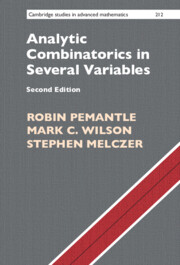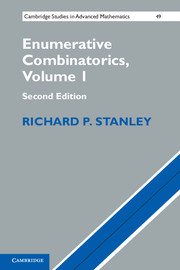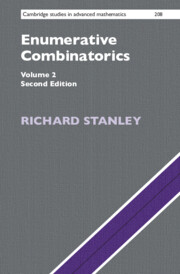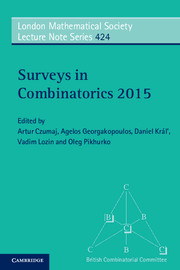Analytic Combinatorics in Several Variables
This book is the first to treat the analytic aspects of combinatorial enumeration from a multivariate perspective. Analytic combinatorics is a branch of enumeration that uses analytic techniques to estimate combinatorial quantities: generating functions are defined and their coefficients are then estimated via complex contour integrals. The multivariate case involves techniques well known in other areas of mathematics but not in combinatorics. Aimed at graduate students and researchers in enumerative combinatorics, the book contains all the necessary background, including a review of the uses of generating functions in combinatorial enumeration as well as chapters devoted to saddle point analysis, Groebner bases, Laurent series and amoebas, and a smattering of differential and algebraic topology. All software along with other ancillary material can be located via the book's website, http://www.cs.auckland.ac.nz/~mcw/Research/mvGF/asymultseq/ACSVbook/.
- First and only book on the theory of multivariate generating functions
- Designed to be readable by graduate students after just one year of graduate study
- Includes many worked examples and devotes a chapter to expository examples that tie in with applications in combinatorics, probability and statistical physics
- Summarizes a decade of new research by the authors
Reviews & endorsements
'It deserves a place on college library shelves … it provides a nearly universal answer to the 'what can I do with this stuff?' question that students pose in so many basic courses. Recommended.' D. V. Feldman, Choice
'The organization of the book is exemplary. A thorough and well-designed introduction provides full context and is worth rereading as one works through the book … The treatment of analytic methods for multivariate generating functions in this book is breathtaking. A detailed overview is followed by thorough chapters on smooth point asymptotics, multiple point asymptotics, and cone point asymptotics, then four worked examples, and extensions. The end result, a combination of analytic, Morse-theoretic, algebraic, topological, and asymptotic methods, is surprisingly effective. Indeed, it is astonishing that the authors have found relevant ways to exploit such a broad spectrum of mathematical tools to address the problem at hand.' Robert Sedgewick, Bulletin of the AMS
Product details
No date availableAdobe eBook Reader
9781107240513
0 pages
0kg
53 b/w illus. 2 tables 64 exercises
This ISBN is for an eBook version which is distributed on our behalf by a third party.
Table of Contents
- Part I. Combinatorial Enumeration:
- 1. Introduction
- 2. Generating functions
- 3. Univariate asymptotics
- Part II. Mathematical Background:
- 4. Saddle integrals in one variable
- 5. Saddle integrals in more than one variable
- 6. Techniques of symbolic computation via Grobner bases
- 7. Cones, Laurent series and amoebas
- Part III. Multivariate Enumeration:
- 8. Overview of analytic methods for multivariate generating functions
- 9. Smooth point asymptotics
- 10. Multiple point asymptotics
- 11. Cone point asymptotics
- 12. Worked examples
- 13. Extensions
- Part IV. Appendices: Appendix A. Manifolds
- Appendix B. Morse theory
- Appendix C. Stratification and stratified Morse theory.









